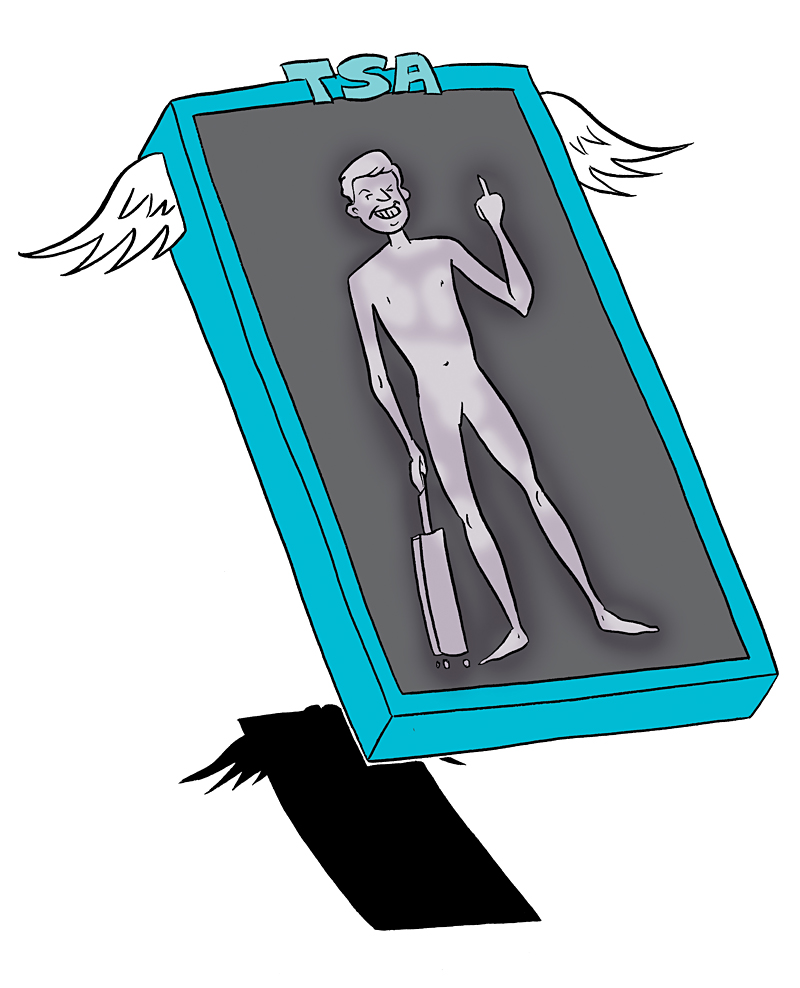On November 15, 2009, Seattleite Phil Mocek stepped into the main terminal at the Albuquerque International Sunport planning to board a flight bound for Sea-Tac. He carried with him two pieces of luggage, a boarding pass, and a cell phone capable of recording audio and video. What he didn’t have was a valid form of identification—no driver’s license, no passport, nothing.
When Mocek reached the front of the line at the airport security checkpoint, a TSA worker asked him to step aside for further questioning. A few hours later, Mocek’s flight touched down in Washington. Only he wasn’t on board. Instead, the 37-year-old software developer was stuck inside a cell at the Albuquerque jail.
After Mocek attempted to record his conversation with the TSA checkpoint workers, they summoned both the Albuquerque police and the FBI. Police reports claim Mocek started “causing a disturbance and yelling.” They also say he shouted, “I know my rights!” in a voice loud enough to cause other passengers “to hesitate before continuing through the checkpoint.”
Mocek was eventually arrested and charged with four misdemeanors: trespassing, disorderly conduct, refusing to obey an officer, and concealing his identity. But last Friday, after a short trial that was followed closely by civil-liberties advocates around the country, Mocek was found not guilty on all counts.
Edward Hasbrouck, founder of the Identity Project, a nonprofit organization that “builds public awareness about the effects of ID requirements on fundamental rights,” says Mocek’s case marked the first time anyone has ever challenged the TSA’s authority to question and detain travelers.
“[TSA] wants people to show ID and submit to a search and groping, but there’s no legal basis for most of this,” says Hasbrouck, who publishes the travel book series The Practical Nomad. “The TSA relies fundamentally on intimidation. The ultimate threat is ‘We’ll call the local police.’ And when they’re called in, they don’t say ‘We don’t see a crime here.’ They get that person out of there.”
After his arrest, Mocek filed a public records request for the police reports, as well as for the audio from police radio conversations during the incident and the video from airport security cameras. Hasbrouck says the audio and video directly contradict the police’s assertion that Mocek was acting belligerently.
“He was doing nothing wrong,” says Hasbrouck. “He was not causing any kind of disturbance. If you look at the audio and video, it’s quite clear. Instead, they trumped up a rather bizarre collection of charges. How can he be trespassing if he was in an airport with a valid ticket?”
And though TSA workers and police claimed Mocek was not allowed to record at the airport, he actually had received written permission in advance from the New Mexico TSA to do just that, as documented in an e-mail exchange he posted on the website FlyerTalk.
Mocek, who traveled to New Mexico for his court date via train, received more than $3,000 in donations for his legal defense via supporters at FlyerTalk and the Cannabis Defense Coaltion, money he used to hire an attorney renowned for representing two Guantanamo Bay detainees. And though no witnesses were called nor evidence introduced in his defense, it took jurors only an hour to return a verdict.







